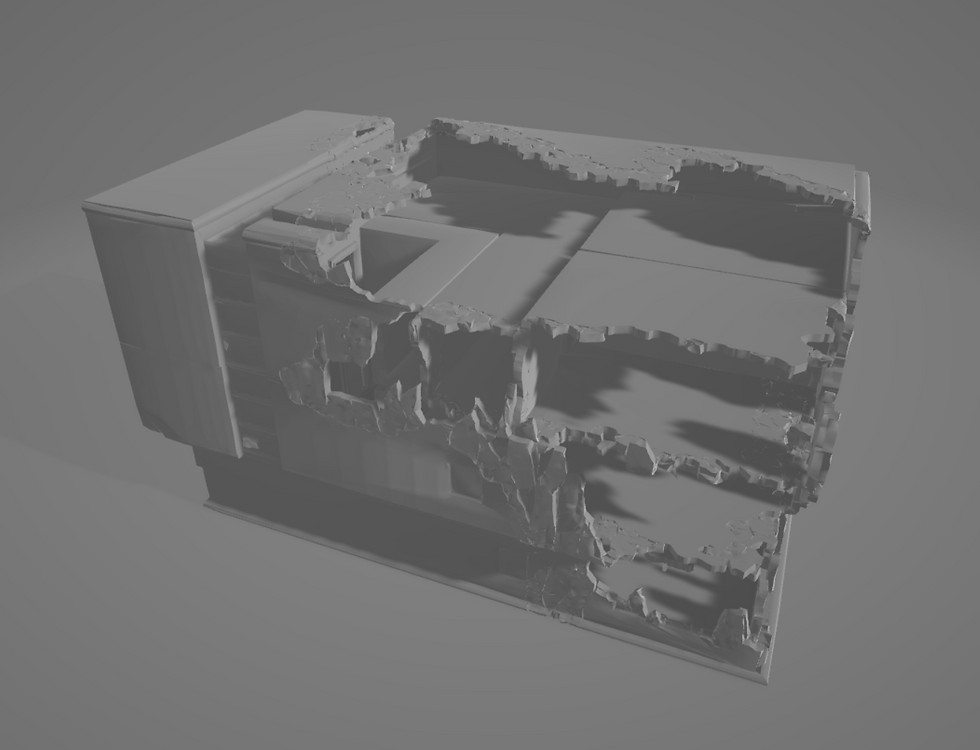Isolated Intelligence, The Game
- Chris Leu
- Apr 18, 2019
- 2 min read
Updated: Apr 30, 2019
In eight months, Isolated Intelligence went from a very, very rough game concept, to a very rough game prototype, to a fairly coarse playable build, to final build which is franky shockingly polished.
The early concepts had features such as environmental storytelling, a web of dynamic player upgrades, a speedrun clock, hostile entities that chased the player, among others. However, as is to be expected from a team's first game, we rapidly realized the limits of our scope, especially for a networked physics-based game, and flensed away chunks of the game at a time. Unfortunately, due to mixed circumstance around the final release, we still had to cut away features very, very late in the development cycle.

The final product still shows off networking using the photon framework, in-depth modeling skill, refined animations with character, considerate level design
For the duration of this development cycle, I was the lead of miscellaneous, a role I seized early due to the outstanding competence of our code, art team, and leadership, and how readily tasks that did not fall readily into one of those three categories would be left behind. This meant I was frequently jumping from discipline to discipline, especially during the second half of the project, when the other leads would tap me for manpower on a given ticket. Overall, I feel like I did quite well, and I certainly enjoyed the opportunity to expand my skillset beyond what I would've had at this point, if I had been on exclusively one discipline.
The earliest prototypes of the title focused on interactable objects, establishing a network framework, and demonstrating features, as shown above. We rapidly developed our feature list, produced our models, textures, and effects, and was able to reach a very viable game.
In discussions about the game after its final release through Algonquin College, I frequently said the team was too close to it, as we saw its flaws, of which there are several, a dozen times larger than they actually are, but we've positive reviews from almost each person who plays for more than a few minutes.
The reality of the project is that it was invaluable experience working in a medium-sized team, working with peer leadership, working with new software and methods, in dozens or hundreds of new experiences, but it brought us far from our comfort zone.
In doing so, we've grown as a team, and honed each skill we brought to the table for the project, but the final result is not what it could've been, or not as impressive as we wanted it to be, simply due to the nature of how inexperienced we used to be.
But all in all, the project took us from raw, untested, students and forged the team into tried and tested game devs. We may not have had as many interpersonal issues as most teams had, much to the credit of our leadership, but we were tempered in having to continually improve our methods, workloads, our expectations for each other and ourselves.
And I would do it all again in a heartbeat.




Comments